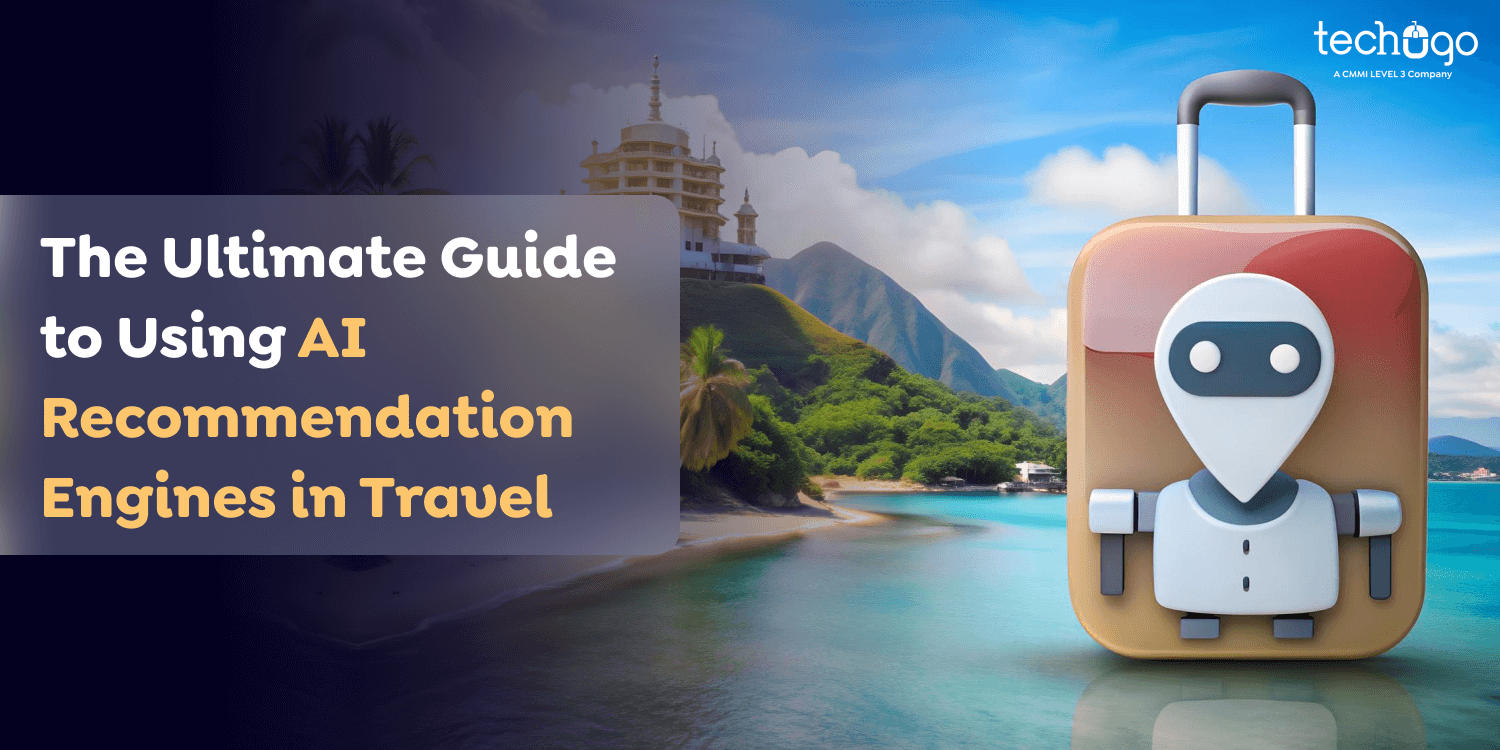20 Sep 2024
The Ultimate Guide to Location-Based App Development: Key Insights and Features
Matthew Connor
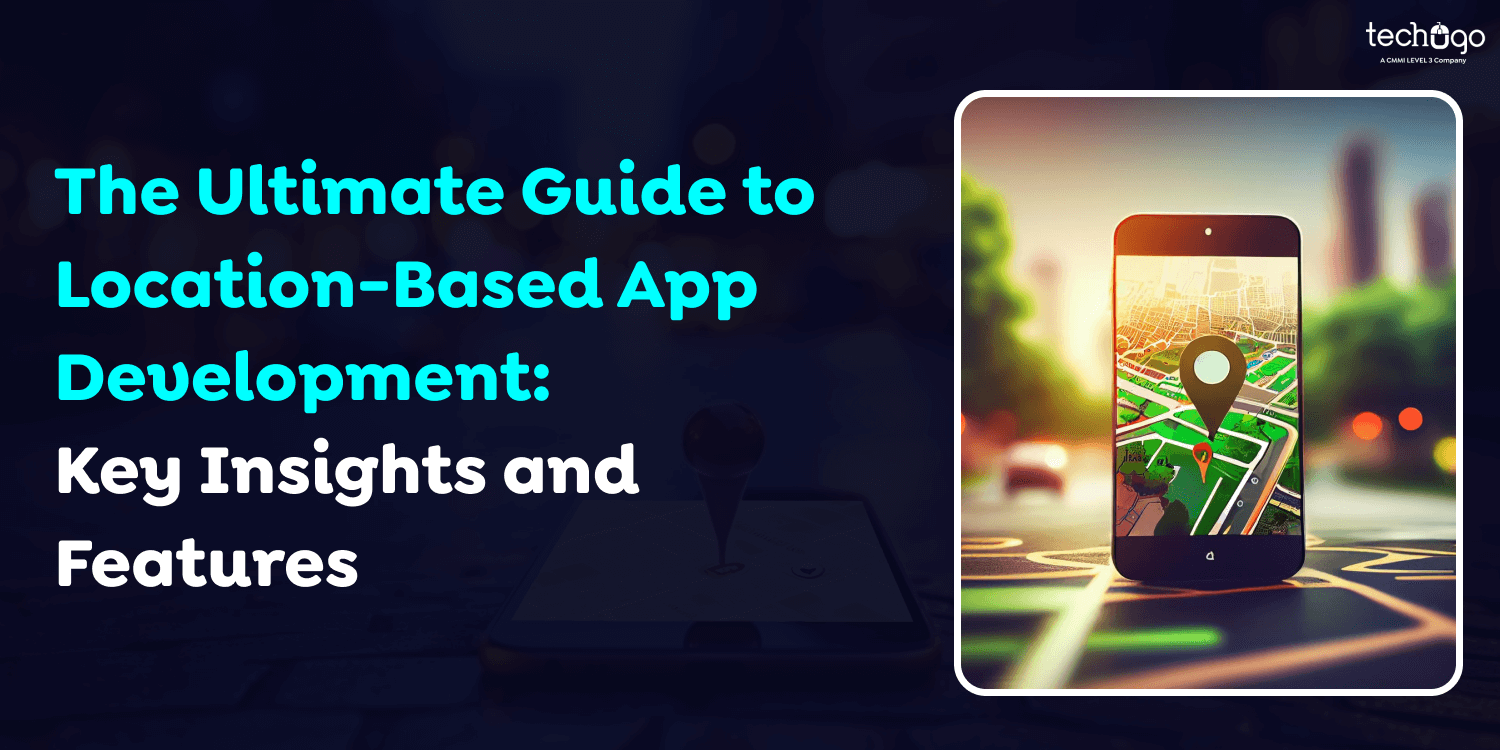
Apps that use location are in vogue right now. Many mobile applications incorporate geolocation capabilities.
Yet, how do you create a location-based app, and how does it benefit your company?
Location-based app development extends beyond helping people find directions, places, or people.
Retailers are already utilizing technology such as geofencing to send messages to customers who are in close proximity. Social networking applications allow users to label places while sharing text, images, or videos. Weather apps use the user’s location to notify them of real-time weather conditions.
Applications that use location to determine their location have many uses. This article will examine the steps in creating applications based on location, key features, and concepts for 2024.
Let’s begin with the basics first.
What is a Location-Based App?

When you think of a location-based application, you most likely imagine Uber, Tinder, food delivery apps, and many other apps in which your location is essential to the app’s function. This is certainly true, in part, but there are many more than just that. They provide various services based on the proximity of their places of operation. They can find locations such as people, services, or individuals nearby using GPS, WiFi, and mobile-based data.
Location based mobile app development is used in retail, logistics tourism, on-demand health services, social media, and games. Consider that last moment when you bought pizza or searched for an Airbnb where you could stay in a different location, all of which were location-based apps. These apps let you keep track of your orders or locate nearby products or services, as well as provide information, suggestions, and directions. They function as a trusted guide who is knowledgeable regardless of your location.
Market Insights on Services that Use Geolocation
A growing number of industries are now providing location-based services to their customers and trying to tailor the experience for them and keep them satisfied. According to recent reports, the global location-based service market was worth $45.4 billion as of 2021. The market is predicted to grow to $402.4 billion in 2031, increasing at a rate of 24.6 percent between 2022 and 2031.
The market for services that are based on location can be influenced by several essential aspects, which include:
- There is demand for LBS in various sectors. Industries like healthcare logistics, social media, travel, and transportation have all incorporated LBS as an integral part of their operations. It enables companies to refine their operations, enhance efficiency, and improve the customer experience.
- Mobile and smartphones are becoming increasingly popular. With more and more people using smartphones worldwide, there’s an enormous potential market for LBS. In the near future, LBS will be an integral feature.
- A growing trend towards the use of location-based ads. With the aid of LBS, businesses can now offer advertisements based on location to clients at specific locations.
- The advancement of technology. The advancement of 5G technology, IoT, 5G, AI, and ML is contributing to the growth in the LBS market. These technologies let businesses create more personalized services adapted to user requirements.
- A favorable regulation environment: Now that LBS is utilized in more industries worldwide, regulators and governments have begun to realize its importance, making the regulatory framework more favorable for markets.
Types of Location-Based Apps
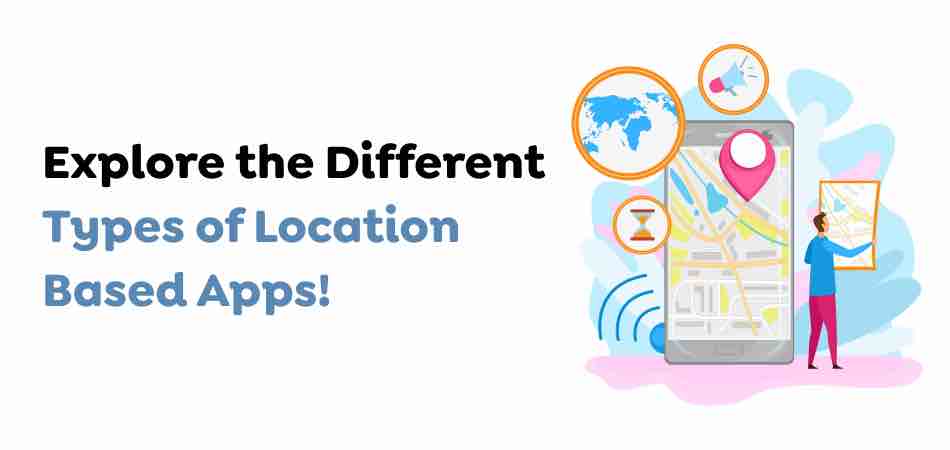
What kinds of apps make use of location-based technology? There are many but we’ve highlighted the top ones.
Deliver and Navigation Applications
Delivery apps are the most apparent instance of apps that are based on location. For example, taxi apps typically utilize Geolocation to locate the driver nearby. Furthermore, when the taxi arrives, the driver can check where the car was parked and follow the direction of the journey.
Social Networks
An unintentionally obvious instance of a location-based application could be the social media application. Do you remember when you logged in to your Instagram account and a message asked if the application could utilize your location? This is precisely the reason why it’s the case with location-based apps.
Of course, geolocation data is not required when developing social apps. However, apps can use geolocation data to recommend appealing content.
For instance, In TikTok, depending on the user’s location, the app decides if it wants to play the video. Imagine a person uploading an online video from Spain but wishing it to be viewed within the US. First, the video needs to be in the top ten most popular YouTube videos in Spain to be watched in the US.
Examples: TikTok, Facebook, Instagram, Snapchat, Yelp, Foursquare
Marketplaces
In the marketplace applications, buyers constantly want to know what time it will take. To calculate the approximate delivery time, marketplace apps utilize API interfaces that track the buyer’s and user’s Geolocation.
Additionally, marketplaces may modify search results to suit user preferences by geographical region. For instance, in Ukrainian marketplaces, search results can offer users sneakers that are different from those in the US.
Examples: Amazon, eBay
Dating Apps
The app must identify where the user lives to help users find an appropriate match to see a game. Most dating apps need users to provide their location and then show the area in which potential partners could be.
Examples: Tinder, Bumble, Hinge, Pure
Fitness Apps
Geolocation functions can be an ideal addition to fitness apps, aiding users in jogging. Most fitness apps with location-based features are synchronized with fitness trackers, allowing joggers to track their progress via mobile apps. The map data of these apps is gathered from satellites.
Examples: Nike Run Club, Map My Run.
Features of Location-based Apps
These are some of the characteristics that are hot within the realm of applications that are based on location.
Using the Map as the App Interface
A simple user interface for news feeds is no longer fashionable and needs to be updated. Map’s location-based app UI is an excellent alternative to newsfeeds.
Users can, therefore, monitor any real-time updates based on location.
Notifications
Location apps can communicate more effectively with users by sending them beneficial notifications. Users will receive updates on the best deals of the day, potentially dangerous circumstances, or current information about events happening in their community.
The user doesn’t need to look through any details since once it’s placed in a location-based platform, the user is informed immediately.
Information Filter
Location-based information is part of different location-based information. They could, therefore, include an abundance of details.
An excellent feature is that users can easily filter out the necessary information and receive reminders about their selected topics. Additionally, users can remove information that is not relevant to them.
Personalized Suggestions
The ability to send personalized suggestions is a great feature. After the app gets to know the user better, it can offer customized suggestions on local news, events, and other information, depending on the user’s profile and interests, as well as the people they follow on Twitter.
Reward program
It’s a perfect gaming feature for local businesses.
For instance, they may earn points or rewards for attending certain occasions. In the future, they could trade these points in exchange for perhaps admission for free.
Location-based AR
When combined with GPS Augmented reality, location sensors are poised to revolutionize the ways we communicate and navigate around our actual spatial space.
UX that allows sharing images, data, and other types of content based on location will be awe-inspiring.
Benefits of Location-Based App Development for Business
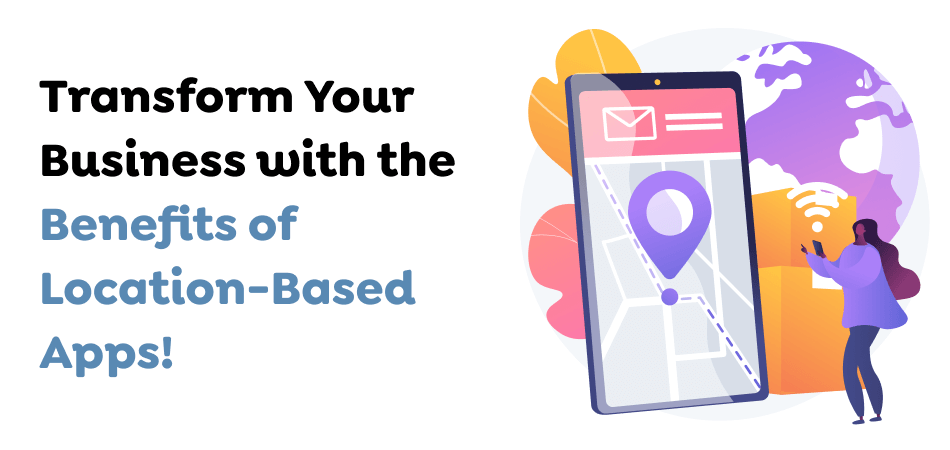
There are many advantages to creating applications that are based on locations for companies:
Improved Customer Engagement
Location-based apps are a great way to provide personalized messages and deals to customers based on location. This could help businesses improve customer satisfaction and boost sales.
Enhanced Customer Convenience
Location-based apps help customers easily find companies and products. For instance, a restaurant app can help customers locate the closest restaurant, while a retailer app could help shoppers discover the nearest store carrying the product they want.
Increased Foot Traffic
Through promotions based on location and discounts, we can make it easier for customers to visit their shop or location.
Greater Insights
Location-based apps give businesses valuable insight into customer behavior and preferences. For instance, a retail company could use data from its location to study patterns in foot traffic and optimize its store layout.
Increased Customer Loyalty
With personalized services and incentives, companies can create customer loyalty and encourage customers to return to their businesses.
Overall, location-based applications can aid businesses in improving customer engagement, ease of use, and loyalty and offer valuable insight into customer behavior.
Challenges in Building a Location-Based App
Making any app comes with issues and dangers, regardless of the many advantages it can bring to businesses. If you’re aware of the obstacles and have prepared, you can overcome them when they occur.
Security
Privacy and security concerns are among the most frequent problems related to location-based applications. Many Managers don’t want to allow the geolocation feature on their devices or let apps monitor their activities because they aren’t sure about the security implications.
If you’re trying to make your application as secure as it can be, ensure that you:
Use multi-factor authentication
Secure communications by using a network security configuration, SSL certificate, or App for Transport Security.
Do not save sensitive company data on the devices of users
Ethical Considerations
Location-based applications collect personal information from users they give in exchange for discounts, benefits, and other benefits. Gathering and managing this information with extreme care and being extremely cautious is essential.
There are now many ethical concerns related to using private data since people are usually unaware that their activities online are being monitored in any way.
Regarding apps based on location, the ethical concerns are much more severe since someone’s location may be shared with a third party. If you do not want to violate the ethical guidelines, ensure that you let users know that data will be gathered and that you won’t give their location to anyone unless they agree.
Positioning Accuracy
Inaccurate positioning can cause severe financial losses and other negative consequences. Therefore, when developing apps that use location data, ensure the locations are pitch-perfect and precise.
- Any errors could be caused by:
- High urban density
- Unreliable information-obtaining methods
- Moving devices
- Incorrect information
- Poor interpretation of data
Location-Based App Development: How To Create a Navigation App
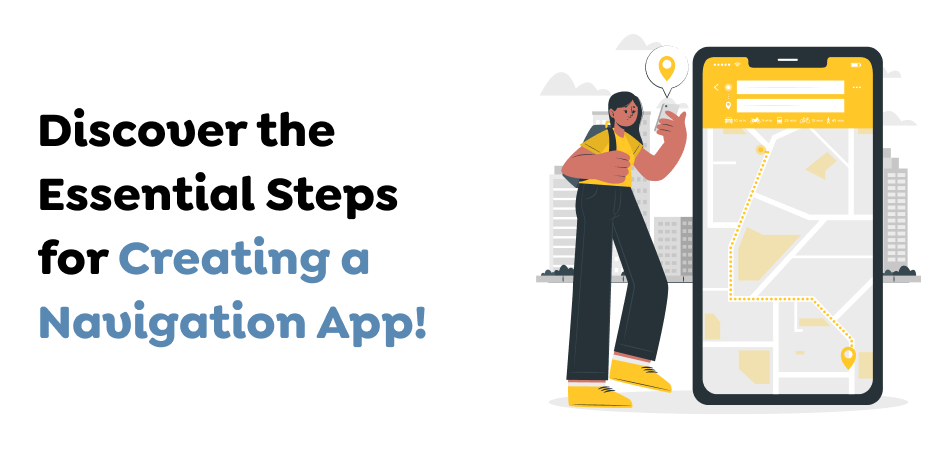
These are the steps you should follow when creating navigation apps.
Learn About the Market and Look for Possibilities
It is crucial to look into similar geolocation apps on the market and their unique features. Make use of this information to discover the gaps you expect to see in your rival’s application and attempt to offer an all-encompassing solution to the issue you’re seeking to resolve.
After that, read the reviews of these apps, study the market leaders in this field, Talk to a few potential users, and learn about their expectations. When you have completed a study on the user and competitor, identify the potential benefits of the app that appeal to your clients and differentiate you from the competition.
Select a Reliable Mobile App Development Company
The success of your app is contingent on the company that develops the geolocation apps you select for your app concept to be possible. Choosing the right partner could be time-saving and cost-effective since you don’t have to be concerned about the cost of salary, taxes, bonuses, equipment, and more.
Choose an app development company in Canada with the appropriate expertise and a solid portfolio and install the apps to assess their usability.
Find out whether the company developing your app is proficient on the platform on which you plan to start your application.
The costs for developing an app for a location-based app can vary according to the company you select. Ukraine has the lowest offering costs, closely followed by the USA and the UK. The typical cost ranges from $30,000-$100,000, according to the complexity of the app and its features.
Create the Design for the Application’s UI/UX
After you have decided on the app’s features, you can begin to design an image prototype. Get started on the app’s appearance, colors, typography, fonts, and so on, and the screens you’d like to incorporate. This will help confirm your ideas.
Right Technology Stack
The location-based technology stack will be determined based on the app platform you want to target, for example, iOS, Android, or Web, and the goals you’re aiming for.
Incorporating the right local-based application into the right SDK (software development kit) will allow your app to access accurate information about the user’s device’s location. For example, maps based on Google Maps and Apple MapKit are available for iOS. Furthermore, various technologies based on location and other frameworks, like OpenStreetMap, Map Box, etc., provide additional functions based on location.
Choose the Functions
The primary attributes of a location-based app that you need to include are listed below.
- Map view
- Route mapping
- User-location detection
- Notifications based on location
- Location History
Places Near me Finder
It is also possible to add additional features based on the goal of the application.
- Set the radius
- Ratings and suggestions
- Location search using photographs
- Real-time updates
- Forecasts for weather
- Location shares information with contacts
The number of features that can be added must be kept to a minimum for the initial version. You should develop an MVP and prioritize your features based on user comments.
Maintain and Release your Application
Once the tests have been completed and your application complies with the App Store and Google Play Store rules, it’s time to go live. However, it’s essential to keep in mind that the development of your app will not stop. To keep your software current, you must constantly include new features, upgrade your application based on data and support, and keep it.
Location Apps to help Place your Business in the Spotlight
Despite the plethora of applications that utilize Geolocation across various sectors, there still needs to be more potential that merits your focus. Here are a few more geolocation apps to spark your imagination.
Navigation and Tourism
In conjunction with AR technology, location-based apps can provide user-friendly tours worldwide. Imagine walking through the city and getting all the details regarding the attractions and local businesses on your mobile.
Task Automation
In conjunction with smart devices for home, apps that track your location allow you to control various tasks. The same capabilities exist within the Apple Home and IFTTT apps. For instance, you can set the app to switch on lights or the thermostat when you arrive at your home.
Hospitality
Geolocation-based hotel apps may provide additional services, such as on-site navigation, menus for mobile restaurants, and self-check-in/out at departure/arrival. It is also possible to use door-to-door navigation systems to allow electronic keys. It’s just to connect your smartphone with a Beacon on your door to allow it access.
Indoor Navigation
Although indoor navigation isn’t based on traditional GPS data, it relies on a Bluetooth low-energy (BLE) device system; however, it’s an exciting use case for geolocation apps. The capabilities can be integrated into shopping malls or event apps to assist visitors in finding their way to the location.
Alerts for Weather and Specific Location
Geolocation is also utilized to provide pertinent weather forecasts to those at a specific place. Yet, in addition to the standard forecasts, these apps can save lives by delivering localized alerts for hurricanes, wildfires, or blizzards.
Top Industries That are Benefitted From Mobile Apps
Here are a few of the most prestigious industries that can reap huge benefits from Mobile app development. Take a look below:
IT Industry
To attract other industries to innovation, the IT sector must demonstrate the benefits of its product or service to its customers, which they can do by using their apps. Certain tech companies demonstrate how they can change how businesses operate by using specific smartphone apps.
Mobile apps allow companies to present the work impressively completed by their staff. IT companies can also use their marketing software more effectively to increase their work portfolios in the near future.
Retail Industry
Retail is one of the industries that has distinct characteristics. A user-friendly app that gives excellent support can transform the entire retail market. With a mobile application that is specifically designed, retailers will have an all-encompassing view and be able to display all information relevant to their products.
The mobile app for retail offers a variety of innovative options that allow retailers to connect with consumers, promote their products, build brand awareness, and ultimately boost sales. Recognizing the value of mobile apps and integrating them into possible development strategies could make for a profitable retail business.
Online Food/Grocery Ordering Industry
The most talked about on-demand business is food delivery, and food ordering has been chasing ever-higher levels because people are more likely to order their favorite food items delivered to their doorstep. This year, there has been a massive increase in food and grocery ordering applications.
In previous years, with restaurants shut down, dine-in dining options, and grocery stores having lengthy lines, many have turned to mobile apps to place orders, take out, and deliver food items and meals. This usage of mobile apps for food and grocery shopping has grown and is predicted to develop an immense user base by 2024.
Downloads of apps that deliver food from restaurants, such as GrubHub, DoorDash, Uber Eats, and Postmates, increased by 60%.
Education Industry
The current pandemic has altered the method of learning. The use of online educational materials has increased enormously over the past seven to eight months and is predicted to continue growing. Mobility has made learning much easier and cost-effective due to the most recent application development.
Mobile apps have generated a lot of enthusiasm for education and have allowed students to learn quickly. This makes it possible for mobile applications to attain better performance in the near future.
Tourism Industry
The days when we had to stand in front of travel and tour offices to purchase tickets, and now all bookings can be made, three-dimensional visualization apps can provide travelers much relaxation since everything can be completed from their homes. They allow tourists to locate thrilling destinations quickly and provide information on how to access the site safely.
As a result, increasing numbers of travel businesses are turning online to establish their presence and an attractive brand for tourists.
E-Commerce Industry
The E-commerce industry is undoubtedly one of the biggest beneficiaries of mobile apps. Shopping online is now much more convenient than it was because of the popularity of mobile apps, and this trend will only increase. Companies can now send customers messages about their product’s new arrival or launch and encourage them to purchase.
The enhanced real-world experience of online shopping allows retailers to offer the full description of products and their location in real-time payment options online.
What Does it Cost to Develop a Location-Based App?
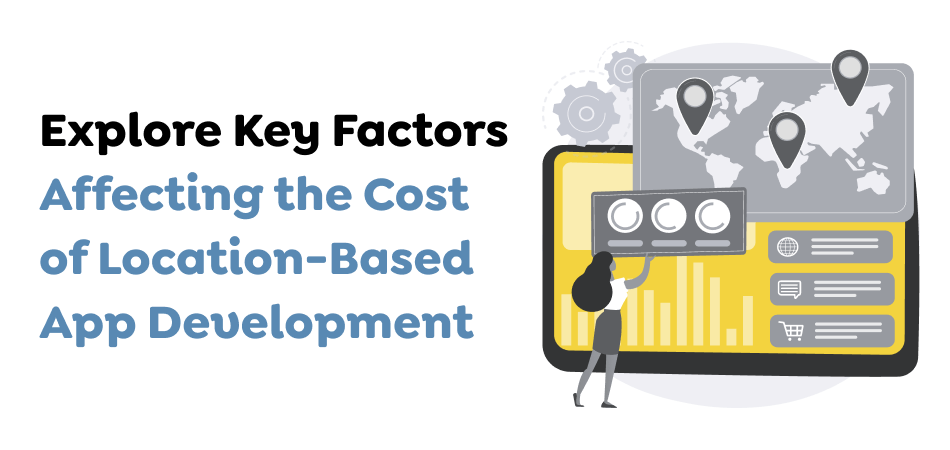
The cost of location based app development varies according to various aspects, such as the app’s complexity, capabilities, and features, the experience of the development team, and the tools/technology utilized during the development. When choosing an agency to develop software to complete this project, they must provide specific quotes tailored to your needs and solutions appropriate for each.
Specific factors that could make or break the cost that are involved in developing an app based on location:
Geolocation Technology
The complexity and precision of the geolocation technology used in an app could significantly impact its total costs. For example, employing high-precision location services like GPS is more expensive than less precise technology such as cell tower triangulation and Wi-Fi-based location tracking.
Mapping
Implementing mapping capabilities such as real-time traffic updates or three-dimensional visualization could add cost when developing apps that use location to aid.
Custom Features and Functionality
When more customized features and capabilities are integrated into an app’s design process, the app’s cost will rise accordingly. This could include personalized recommendations and social media integration—instant data updates.
Platform
The cost of developing an app based on location differs depending on the platform selected. Some applications require more money and experience to grow than others.
Cost estimates for developing applications based on location vary depending on various factors, including the application’s complexity, the features included in the tool used for development, and the expertise and experience of the development team.
However, depending on the project’s nature and complexity, the approximate cost to create a location-based app can range between $10,000 and $500,000.
Location-based apps have become increasingly popular as more people depend on them to perform various tasks.
Conclusion
Geolocation is a valuable feature that can be incorporated into creating many apps. It offers many advantages in apps designed for various sectors and industries, such as healthcare, marketplaces, travel, and media.
Nowadays, most applications are based on location, allowing users to locate information on upcoming events, local announcements, updates, etc.
If you have an idea for an app that uses location data or are looking for a mobile application development company, contact us. We have hands-on expertise in developing location-based apps similar to the ones mentioned above in different industries.
Get in touch with Techugo to explore how location-based app development can transform your business strategy.
Get In touch
We are excited to here from you and let’s start something special Together. Call Us for any inquiry.
Write us
sales@techugo.caJust a call away
About you


